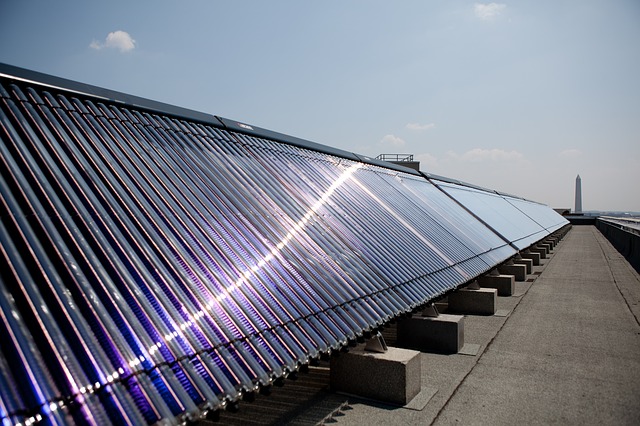Having a reliable supply of hot water is essential for homes and businesses alike. There’s nothing worse than having a freezing cold shower in the middle of winter, or having no hot water to do the dishes in!
Hence why finding the right hot water cylinder is essential. But the question remains; where should you look for one? Consider a Kiwi business like Cylinder Guy, which supply and install high-quality water heaters that match your budget and lifestyle.
This article outlines everything you need to know about buying a hot water cylinder in New Zealand.
Top 3 Businesses
Here are three of the best water heater businesses in New Zealand:
| Rank | Business | Location | Website |
| 1 | Cylinder Guy | NZ-wide | www.cylinderguy.co.nz |
| 2 | Water And Gas | Wellington | waterandgas.co.nz |
| 3 | Superheat | Christchurch | www.superheat.co.nz |
How to choose a good provider
Unless you are a plumber, there is a good chance you will need to hire someone to deliver and install your new hot water tank for you. It can be very fiddly and potentially dangerous work that may involve working with gas and electrical systems – and in many cases, your cylinder’s warranty may only be valid if it is installed by a licenced professional.
As such, you will want to find a high-quality service person. And to do that, you should consider the following factors when comparing providers:
Pricing
Most providers will charge a delivery and installation fee on top of the price of the unit itself. Shop around to make sure you get a good deal, and check to see if a provider is willing to price match with their competitors. Keep in mind that the type of system you buy will have the biggest effect on the overall price; electric systems are generally the cheapest upfront whilst solar is the most expensive upfront (though they have lower ongoing costs).
Proximity
Naturally, the distance from your provider to your property will affect the price you pay – if your provider is located far away they will likely charge you a higher rate to travel to your property. Unless you are adamant that you want a specific provider, opt for a local one.
Disposal
It hey haveour budget and lifestyle.water heaters and rom corroding the tank. de over time; it’ needed or if you want one that keeis worth checking to see what their disposal policy is. Do they dispose of your existing hot water cylinder in an environmentally-friendly manner? If so, they may charge around $80 more, but this is arguably worth it.
Rebates
You can also check to see if you are eligible for any government rebates when getting a new hot water cylinder. Certain types of heating systems like solar may be eligible.
Reviews
Finally, check online reviews (although word-of-mouth recommendations are more reliable) to assess the quality of the business. Be wary of fake reviews written on their website – sites like Google and Yelp may be more trustworthy.
How to choose the right system for you
Of course, before you go about booking anyone you will need to decide what type of heating method you want – gas, electricity, heat pump or solar? Each system has its advantages and disadvantages.

Gas
- If your property has an existing natural gas connection, this option should work out to be cheaper than an electric system given that gas prices are currently cheaper than electricity prices.
- Gas hot water heaters are usually installed outside as a result of venting requirements, however if you have a flue you can install it indoors.
- Gas cylinders will continue to function in the event of a blackout.
- They range in cost from roughly $900 to $2000 (plus delivery and installation fees).
Electric
- Electric hot water tanks are generally the cheapest to purchase and install, however they are often the most costly to run due to electricity prices and full day rates.
- Systems that use off-peak electricity tend to be a lot cheaper; however they aren’t available to all properties.
- They can be installed either outdoors or indoors.
- Their costs range from around $300 to $1500, excluding setup fees.
Solar
- Solar hot water systems use solar collection panels plus a storage unit. You will generally require a large tank so that you can account for days which do not receive as much sunlight.
- Most solar tanks have an added gas or electric element to keep the water hot on a rainy day.
- They are often the most expensive to purchase and install, however they make up for this with their cheap ongoing costs which can save you money in the long term.
- You may be able to receive government rebates to offset the initial costs.
- They cost around $2000 to $7000 upfront, excluding installation.
Heat pump
- A heat pump is a highly efficient hot water cylinder which extracts heat from the surrounding air and uses this heat to warm up the water inside the tank.
- Heat pump systems must be installed in well-ventilated areas (typically outdoors) in order to access the air it needs to operate.
- They work best in warm climates, however some models are designed to work in colder regions too.
- The unit compressor can be quite noisy, which means you should try not to install it too close to your neighbour’s house.
- You may be able to get government rebates to offset the upfront costs.
- They range in cost from around $2500 to $4000, excluding installation.
Continuous flow vs storage tank
Finally, you will have to decide whether you want a hot water system that heats your water as needed or if you want one that keeps the water hot at all times.
Continuous flow
Continuous flow systems (aka “instantaneous”) provide hot water only when needed, potentially saving you money by minimising heat losses. While they are not truly instantaneous, they do work pretty quickly – usually in just a few seconds. Most systems work using gas but electric systems are also available.
Storage tank
A storage tank is the most common system, found across all different models – gas, heat pump, electric and solar. Keep in mind that some steel tanks may corrode over time; it is important to get yours maintained every few years to prevent this and uphold its lifespan. You will also want your plumber to assess the sacrificial anodes inside – these are metal rods that keep impurities from corroding the tank – every 5 or so years. These tanks generally have 5-10 year warranties.

